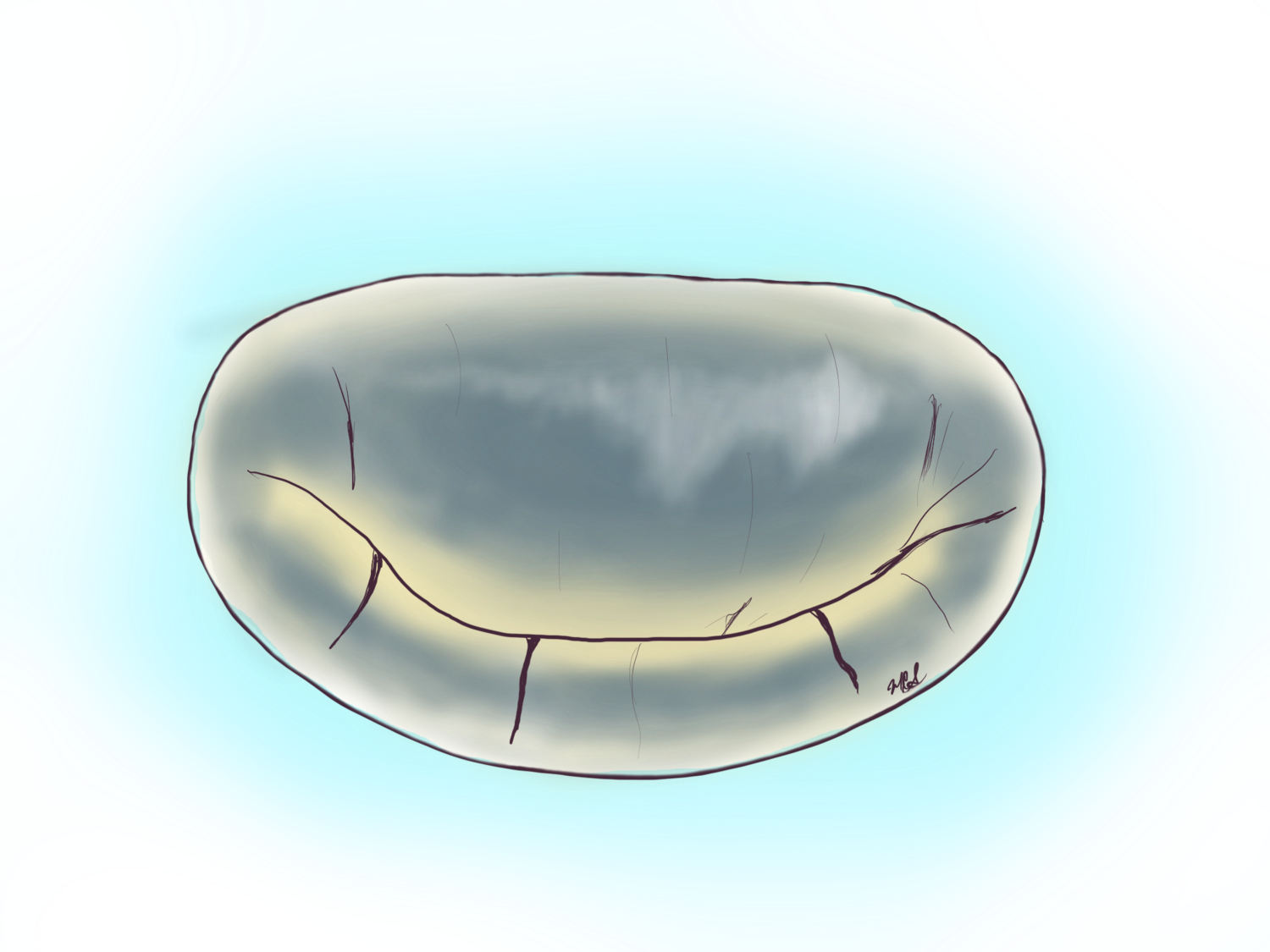What are the Symptoms of Mitral Valve Leakage?
A mitral valve showing ruptured chords on the posterior leaflet or flap. This is an example of degenerative mitral valve disease.
The severity of mitral valve leakage determines the presence or absence of symptoms. Persons with mild or moderate mitral regurgitation or mitral leakage typically have no symptoms associated with their condition, but do warrant follow-up by a cardiologist or internist over the years using echocardiogram and physical examination. Persons with moderate-to-severe or severe mitral regurgitation or leakage may experience fatigue and lack of stamina as well as shortness of breath or breathlessness when active. The level of activity that may trigger or cause symptoms varies from a simple flat level walk to playing a sport at a competitive level.
Many factors influence who develops what symptoms and to what severity. Such factors include physical condition of the individual, presence of abnormal heart rhythms, and presence of elevated pressures within the lung’s blood vessels amongst others. In very advanced forms of mitral valve leakage the condition can be crippling with severe shortness of breath when doing simple things such as walking to the bathroom, getting dressed, or taking a shower. Interestingly, sometimes persons with the most severe leaking mitral valves may be asymptomatic even when carrying out moderate to heavy activity, but this is the minority.
The progression of symptoms in patients with severe mitral valve leakage often starts with no symptoms, slight shortness of breath and fatigue on activity. As times passes the symptoms are more obvious with less activity and ultimately even at rest. The changes to the heart may not show up until the patient has developed symptoms. Although the changes above often happen in the order described, some persons may not present them all or in this order. The final outcome is loss of heart power and congestive heart failure. Notice the enlargement of the lower left chamber of the heart (left ventricle) as the disease progresses, while the ejection fraction (EF) percentage drops signaling the weakening of the left ventricle.
Take home Points:
Fatigue, shortness of breath and no symptoms are how mitral valve disease presents.
severe mitral leakage will lead to heart damage with enlargement and loss of power.
the vast majority of mitral valve disease is not inherited and will not be passed on to sons and daughters.
Why did I develop mitral leakage?
Mitral valve leakage or regurgitation is the most frequent valve disease in the United States with an estimated 4 million Americans suffering from significant leakage. Mitral leakage has different causes. The most common form of leakage is caused by ruptured or stretched-out chords or degenerative disease, something that our current medical understanding cannot predict. We do know that persons with this problem did not caused this, and that this can happen in high intensity athletes as well as sedentary persons. Within the group of degenerative disease there are those with an advanced form called Barlow’s disease which is recognized as inheritable, but its genetics are not fully understood. Barlow’s, together with what we call fibroelastic deficiency, make up the degenerative mitral valve disease group.
Those with fibroelastic deficiency are not at risk of transmitting this problem to their children.
The other forms of mitral leakage caused by coronary blockages (ischemic) and dilated heart failure (functional) do not pass on the mitral leakage to their family members, but if individuals develop blockages and heart attacks or develop a dilated heart (dilated cardiomyopathy) then mitral leakage may occur.
Developing mitral regurgitation of the degenerative type is not caused by lifestyle or environmental exposure. Current medical data shows it is unpredictable who will develop it, with the exception of Barlow’s disease.
As you will read in other sections of this website, some persons who develop severe infections can suffer damage to their hearts from this infection including the mitral valve. This type of infection is called endocarditis.
In persons who have had rheumatic fever, damage to the mitral valve may occur and this may lead to mitral leakage, mitral tightening or both years later. Some drugs, which are not on the market anymore in the United States were known to cause mitral valve damage too. Finally trauma to the chest may cause mitral leakage by virtue of the ruptured of the chords or papillary muscles that anchor the valve, but this is very rare.



